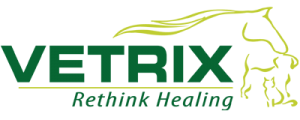The digital age has raised many questions about the internet and cyber security. Eager hackers target business computers intending to extract critical and sensitive information. A veterinary practice is not immune to attack and can stand to lose a lot of valuable data. Here is a quick guide to everything you need to know to keep your veterinary practice safe from cyber attacks.
Veterinary Cyber Security Risks
Veterinary practices often store sensitive client data that is valuable to the wrong people. Data such as home addresses, credit card information, and other personally identifiable information. Targeted data is often used to verify payments, and access banking is usually stored on business computers. This information in the wrong hands can be used to steal money from bank accounts or access other reports.
Hackers can also use private data such as pet names to crack passwords and secret questions linked to accounts. Most security risks are caused by malware, and out-of-date software or a lack of digital security can open doorways for hackers to attack your business.
Securing Your Data
Keeping your data secure is vital for obvious reasons. There are many ways you can ensure that your information is left untouched and your veterinary practice clients are protected. Here are the best ways you can ensure that your practice is on top of its cyber security:
- Offsite data storage – Always keep a secondary offsite backup of data. Cloud or harddrive-based backups can help in cases where cyberattacks erase vital information.
- Secure firewalls – Don’t skimp on your firewalls and digital security. Opting for trustworthy software can secure your data and alert you to possible threats.
- A robust security plan – Setting out a robust plan to manage any data breaches is vital for any veterinary practice with any digital data. By ensuring that you have fail-safes and that your staff understands what is expected of them, you can circumvent most attacks. A shutdown plan in a breach can help save the business and vital information that you cannot operate without, lowering the risk of downtime.
- Regular auditing – Routine security audits and anti-malware scans can help you reduce the risk of sneaky ransomware hanging out on your servers or computers. Speak to a reputable computer company that can allow you to audit your data and offer you solutions to suit your business needs. A qualified technician can help you understand your weakest points and where you need to make changes.
- Use vetted vendors – Using vetted vendors and suppliers can help minimize your risk. Companies that have secure systems are less likely to act as a backdoor to your data. Always check your vendor’s cyber security policies and how they prevent attacks from happening.
Prevention is better than managing an active cyber threat. By securing your data firsthand before it falls into the wrong hands, you can prevent a costly clean-up process that can take your systems offline for a considerable amount of time.
Securing Your Veterinary Practice
If your veterinary practice falls victim to a cyber-attack, it is vital that you speak to your suppliers, operators, and clients. Acting fast can help your clients and operators reduce their own risk of financial and cyber attacks. Change all your passwords and get in touch with a computer security company to help you with the next steps.

